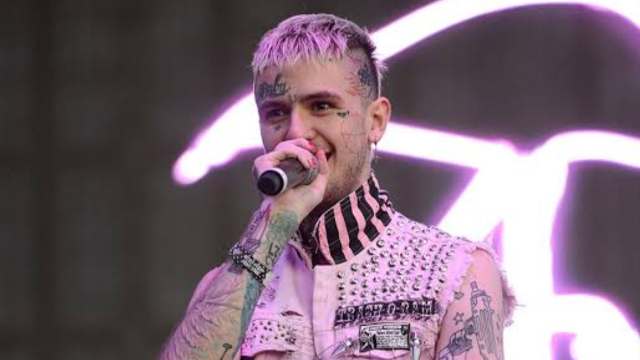Lil Peep, born Gustav Åhr on November 1, 1996, in Long Island, New York, tragically passed away on November 15, 2017, at the age of 21. His sudden death sent shockwaves through the music world, as he was an artist on the rise, blending genres like emo and hip-hop in innovative ways that captured the attention of millions.
His music, which frequently tackled themes of depression, heartbreak, and self-doubt, resonated deeply with fans, particularly among the youth who identified with his raw, emotional expression.
Peep’s music mixed emo-style guitar riffs with hip-hop beats, pioneering a sound that came to be known as “emo rap” or “SoundCloud rap.”
His debut mixtape, Lil Peep Part One, was released in 2015, marking the beginning of his meteoric rise. However, it was his 2017 project, “Come Over When You’re Sober, Pt. 1”, that truly launched him into mainstream recognition.
His unique sound caught the attention of listeners and artists alike, including Post Malone, Diplo, and Pete Wentz from Fall Out Boy, who expressed their admiration for his work after his passing.
Despite his success, Peep’s life was marred by struggles with drug addiction, mental health issues, and feelings of isolation.
In his music, he often alluded to his inner turmoil, with lyrics like “I got a feeling that I’m not gonna be here for next year”.

Peep himself spoke openly about his depression and suicidal thoughts, explaining how his mental health was a driving force behind his music. Tragically, his struggles led to his death, which was ruled as a suspected drug overdose.
In the wake of his passing, Peep’s influence only grew. Fans, musicians, and even public figures paid tribute to his life and legacy.
The British Houses of Parliament projected an image of Peep on its walls, while a memorial ceremony in his hometown of Long Beach, New York, saw hundreds gather to remember the young artist.
His death highlighted the challenges faced by many in the music industry, particularly those related to mental health and substance abuse, and it sparked conversations about the pressures of fame at a young age.
Lil Peep’s impact is undeniable. He changed the landscape of modern hip-hop and emo music, creating a bridge between two genres that were previously seen as separate.
His music continues to inspire new generations of artists, and his legacy as a trailblazer in emo rap lives on through his work.
While his time was tragically short, Lil Peep’s contributions to the music world will never be forgotten.
His death was suspected to be the result of a fentanyl-laced pill.
The rapper had a history of struggling with substance abuse and mental health issues, which he had openly discussed in his music and interviews.
Peep had been on tour at the time of his death, and his final hours were documented on social media.
According to reports, he was found unresponsive on his tour bus in Tucson, Arizona, just before he was scheduled to perform. Following an autopsy, the Pima County Medical Examiner’s Office confirmed that his cause of death was acute intoxication from fentanyl and alprazolam (a sedative).
The use of fentanyl, a powerful synthetic opioid, has been linked to a surge in overdose deaths, particularly in the music and entertainment industries, where many artists face pressure and temptations.





